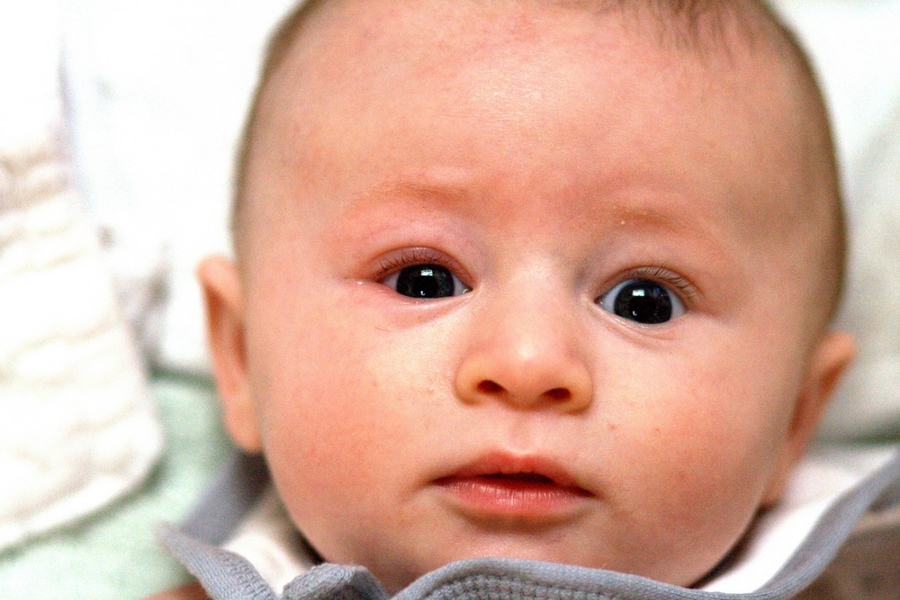
Are Hiccups In New Borns Normal?
28 Feb 2018 | 3 min Read
Babychakra
Author | 1369 Articles
Are infant hiccups normal?

Hiccups are common in infants under one year of age and as the baby grows, they generally tend to go away of their own accord. Hiccups cause more alarm and anxiety to parents than discomfort to babies.
What causes hiccups in babies?

Sudden contractions of the diaphragm that occur due to irritation or stimulation of the diaphragm muscle cause hiccups. Babies also have hiccups when they are in the mother’s womb and are thus, used to the sensation.
In the first twenty-four hours of their life, it is quite normal for a baby to have hiccups and to bring up a little of their feed. This causes no discomfort to them and is not a cause for worry. Older babies up to one years of age also tend to hiccup. A number of factors can trigger hiccups such as:
- Swallowing too much air: This usually occurs while feeding and causes the stomach to bloat up, causing hiccups. Babies who are fed infant formula are more prone to hiccups than breastfed babies. This is probably because formula-fed babies tend to swallow more air as compared to breastfed babies while bottle feeding.
- Gastroesophageal reflux: Babies can have hiccups due to reflux. The muscular value at the end of the baby’s food pipe is not fully developed and is unable to hold the food down in the stomach. With the increase in the length of food pipe and increase in stomach capacity, your baby will eventually grow out of reflux and hiccups.
Tips to stop baby hiccups
American Academy of Paediatrics recommends some simple steps to help your baby, if hiccups happen to occur during feeding.
- If your baby hiccups a lot during feeding, changing the position of the baby may help to ease hiccups.
- Stop feeding for a while and hold the baby upright to get him or her to burp. Help the baby to relax and this might stop baby hiccups.
- To prevent hiccups from occurring during feeding, an effective strategy is to feed the baby when he or she is calm and relatively hungry. However, do not wait to begin feeding until your child is extremely hungry.
For older babies who have started semi-solid foods, the frequency and intensity of hiccups can be decreased by taking certain precautions, including:
- Teach your baby to eat slowly. Babies and toddlers tend to swallow a lot of air if they eat too fast.
- Teach them to chew with their mouth closed and avoid talking while they have food in their mouth.
Should I consult a doctor when my baby has hiccups?
Hiccups generally tend to disappear by themselves as babies grow. Consult your doctor on a priority basis if you notice any of the following symptoms:
- If your baby has hiccups often and they are accompanied by spitting or coughing, then it important to show to a doctor immediately.
- Consult a doctor if your baby is uncomfortable and cranky. Older babies may complain of uneasiness or discomfort. Do not ignore these symptoms and talk to your doctor immediately.
- Frequent hiccups that continue after one year of age should be shown to a doctor. In rare cases, they may be an indication of a serious medical condition.
Also read:Home Remedies For Treating Colic Issues In Babies
Explore the entire collection of articles: Baby Care
A


Related Topics for you
Suggestions offered by doctors on BabyChakra are of advisory nature i.e., for educational and informational purposes only. Content posted on, created for, or compiled by BabyChakra is not intended or designed to replace your doctor's independent judgment about any symptom, condition, or the appropriateness or risks of a procedure or treatment for a given person.
